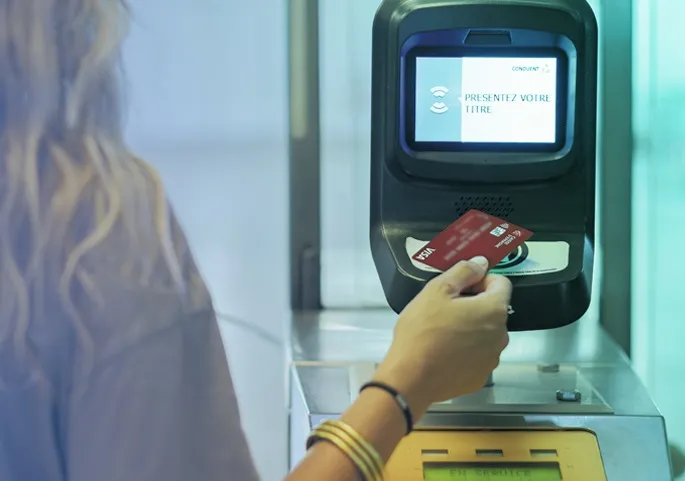
Conduent Transportation, along with partners Visa and Caisse d’Epargne, is implementing a contactless open payment system for Marseille’s public transport network.
The payment system includes buses, coaches, trams and a metro railway. Marseille is the second largest city in France and is the heart of the Aix-Marseille-Provence Métropole, the country’s largest métropole or urban agglomeration, with a population of over 1.8 million.
Passengers will pay with contactless debit and credit cards, as well as NFC-enabled digital wallets. NFC is a method of wireless data transfer that allows smartphones, laptops, tablets and other devices to share data when in close proximity. NFC technology powers contactless payments via mobile wallets like Apple Pay and Google Pay, as well as contactless cards.
Martine Vassal, president of the Aix-Marseille-Provence Métropole, said she hoped the new system will boost ridership numbers. Testing of the new system took place on selected lines during July and it is now being rolled out across the network.
“Leveraging Conduent’s technology and expertise, transportation authorities around the world are modernising their networks to meet the needs of passengers who are increasingly more reliant on technology-based solutions for everyday transactions,” said Adam Appleby, president of transportation solutions at Conduent.
Conduent fare collection systems are in use on more than 400 public transit networks of all sizes around the world. In June, Conduent announced that it had been selected by transport operator Azienda Trasporti Verona in Itay to provide new contactless payment technology for the public buses in Verona city.
Before that, in May, Conduent was selected by the state of Victoria in Australia, to implement an advanced contactless payment account-based ticketing system.
Conduent Transportation provides automated and analytics-based smart mobility solutions for government agencies. These cover roadway charging and management, parking and kerbside management and advanced transit and public safety systems.








